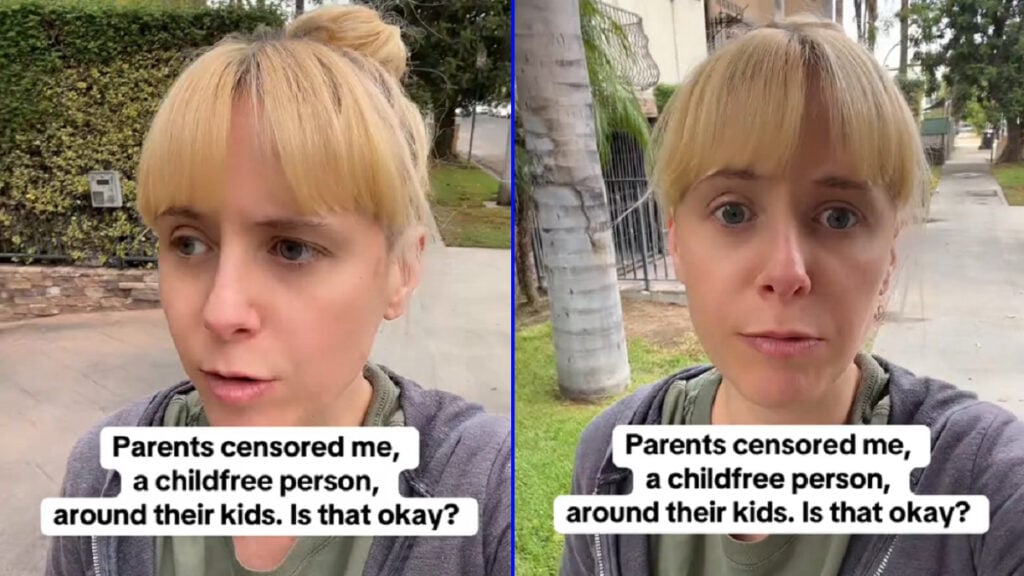Both child-free and child-friendly people have the right to exist in their own spaces. Nobody is right or wrong for wanting to bring children into the world or choosing not to have them at all. But that’s not to say that it doesn’t suck when somebody makes you feel bad about your decision. A California woman was recently told to censor herself around some children at a BBQ. Now she’s wondering if that was okay.
Julia shared her story on TikTok of a recent BBQ she attended. She was sitting next to a couple with some children. She said she started to talk about a “green, leafy substance that you don’t necessarily eat.” The couple turned to her and asked, “Hey, would you mind not talking about that around our kids?” Julia said that this reaction instantly annoyed her.
First, it appears that this was primarily an adult function. So, Julia wondered why she should censor herself at all just because they chose to bring their kids. Secondly, Julia argued children will come to find out plenty of things on their own. And thirdly, she said parents need to take it upon themselves to explain things to their children as they come up. She then asks her TikTok, “Do you guys agree?”
It’s not a cut-and-dry situation. For the most part, Julia has the right idea, but it does have its limits. Obviously, there are specific subjects you shouldn’t bring up around kids, but at the same time, if you’re at a mostly adult event, then you should expect your kids to overhear adult conversation. You need to decide, as a parent, if you’re okay with that. The entire event should not bend over backwards because you chose to bring your kids anyway.
The comments echoed the same sentiment. “The same way I’m not entitled to a child free world, they’re not entitled to a child friendly world…” said one comment. Another person said, “It’s not your job to monitor what the kids are around/hear. Parents need to parent and asking adults to censor themselves vs. them actually parenting is ridiculous.”
Another commenter, however, had a different perspective. They said, “Not every conversation is for every audience,” and while that’s true, the alternative is other people being unreasonably aware of their surroundings.








